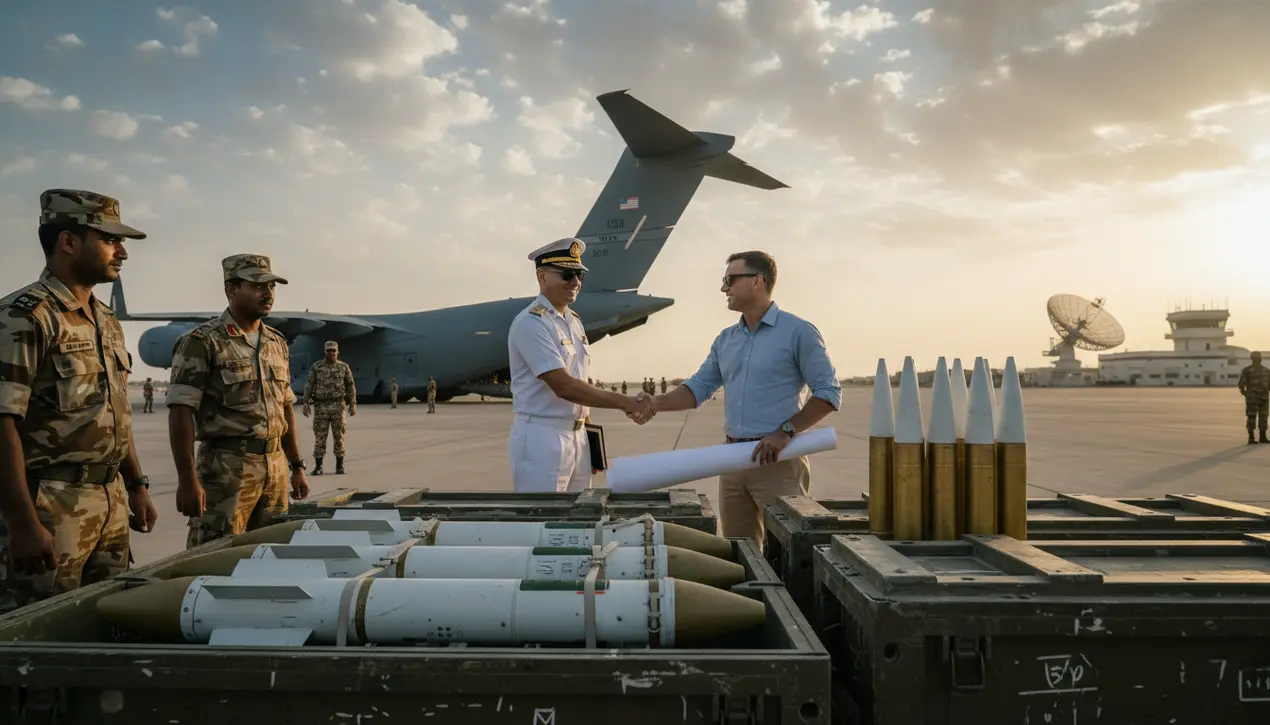
Politicsconflict & defenseArms Deals
US Arms Sale to India May Signal Thaw in Trade Ties
RO
Robert Hayes
1 day ago7 min read8 comments
Washington’s approval of a $93 million arms package for India, comprising Javelin anti-tank missiles and Excalibur precision-guided artillery rounds, represents a significant geopolitical maneuver, one that seasoned analysts interpret as a deliberate thaw in a relationship recently chilled by protracted trade disputes. This transaction, while modest in sheer dollar volume, carries the substantial weight of strategic intent, potentially serving as a crucial confidence-building measure ahead of a prospective visit by US President Donald Trump to New Delhi next year.The backdrop to this development is a complex tapestry of economic friction, where the two democracies have been locked in a stalemate over American tariffs and the arduous negotiation of a broader trade agreement, a process that has often mirrored the protectionist currents sweeping global politics. The decision to greenlight this specific military hardware is far from incidental; the Javelin system, a fire-and-forget missile launcher, provides a formidable deterrent against armored incursions, a capability of paramount concern to Indian defense planners given their regional security calculus, while the GPS-guided Excalibur artillery rounds offer surgical strike potential that minimizes collateral damage, aligning with modern warfare doctrines.This arms sale can be viewed through a historical lens, reminiscent of the foundational agreements like the Logistics Exchange Memorandum of Agreement (LEMOA) and the Communications Compatibility and Security Agreement (COMCASA), which progressively deepened defense interoperability between Washington and New Delhi as a counterbalance to Chinese assertiveness in the Indo-Pacific. Experts suggest this move is a classic diplomatic gambit, using defense cooperation as a lubricant for stalled economic talks, creating a positive momentum that could make compromises on thorny issues like market access, dairy imports, and medical device pricing more palatable for both administrations.The implications extend beyond the bilateral relationship, sending a clear signal to Beijing about the resilience of the US-India strategic partnership and potentially altering the military balance in South Asia, particularly along the contested borders where India faces persistent challenges. However, this warming trend is not without its potential pitfalls; an over-reliance on American weapon systems could complicate India's traditional defense procurement relationships with Russia, while also drawing scrutiny from Pakistan, which will undoubtedly view this enhancement of Indian conventional capabilities with deep apprehension. The ultimate success of this diplomatic opening will be measured not by the delivery of missiles, but by whether it genuinely paves the way for the substantive trade pact that has thus far remained elusive, making this arms deal a critical test case for whether shared strategic interests can successfully override persistent economic disagreements.
#featured
#US-India relations
#arms sale
#Javelin missiles
#trade deal
#diplomacy
#defense cooperation
Stay Informed. Act Smarter.
Get weekly highlights, major headlines, and expert insights — then put your knowledge to work in our live prediction markets.
Comments
Loading comments...
© 2025 Outpoll Service LTD. All rights reserved.